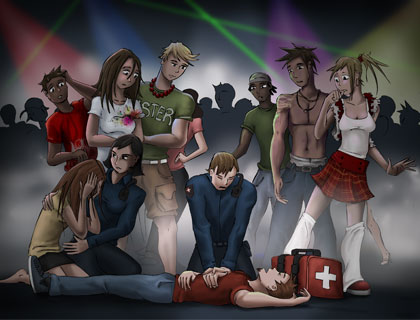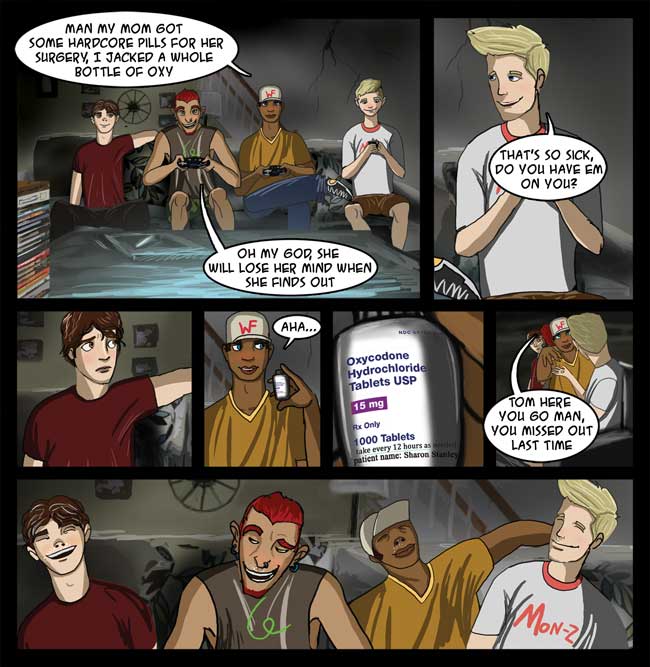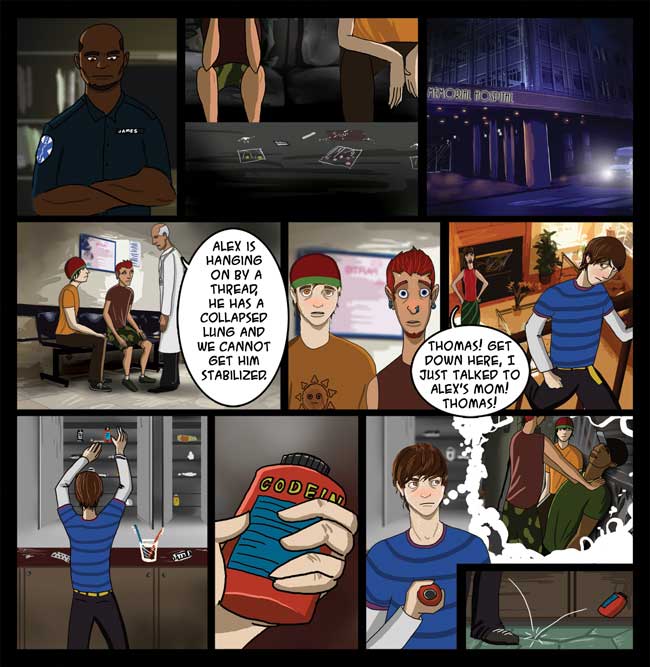ARTICLES, DRUG ABUSE & EFFECTS OF ALCOHOL. REHABILITATION
Party Drugs: Ecstasy Facts

Ecstasy: Is It Worth It?
[youtube id=”qMDJ1vBi3-g” width=”100%” height=”350″]
What Is Ecstasy?
Did you know?
- Ecstasy is MDMA (N-methyl-3, 4-methylened ioxymethamphetamine). Ecstasy Street Names: Ecstasy has many nicknames, such as E, XTC, X, Adam, Eve, Clarity, Lover’s Speed, Rave, Euphoria, Love Doves, Batmans, Decadence and Happy Pill.
- Ecstasy works in a similar way as stimulants (drugs that increase energy and alertness) and hallucinogens (drugs that change the way you think, hear and see things).
- Ecstasy is made mainly in illegal labs and comes in tablets or capsules, which are usually taken by mouth. A dose is about 50 to 200 mg. It can also be injected or snorted.
- Ecstasy is used mainly at all night dance parties (raves), clubs or concerts. Effects usually begin 60 to 90 minutes after the drug is taken and last 3 to 6 hours.
What Does Ecstasy Do?
While using a person may experience:
- A strong sense of pleasure, well-being and confidence
- Increased sociability, openness and sensitivity to other people
- Increased energy or hyperactivity, or a relaxed feeling
- Feeling more alert and awake
- Dilated (big) pupils, rapid eye movement and blurred vision
- Rapid heart rate, blood pressure and breathing
- Increased body temperature, possibly leading to hyperthermia (unusually high body temperature)
- Muscle cramping and tension
- Clenching of jaw muscles, teeth grinding and jaw pain
- Sweating or chills, faintness, dizziness, confusion or feeling tired
- Dry mouth and throat, dehydration (lack of sufficient water in the body)
- Nausea or vomiting, loss of appetite
- Distortions in thinking, such as time going slow or fast or having changed memories
- Anxiety, paranoia (feeling scared or suspicious for no reason) or panic attacks
- Hallucinations (seeing or hearing things that aren’t really there)

Side Effects of Ecstasy
After heavy use over a long period of time, a person may experience:
- Forgetfulness, poor concentration and feeling depressed (sad). Sometimes, sad feelings happen a few days after taking Ecstasy. The person may even think about killing him- or herself.
- Tiredness, sleeping problems, confusion, panic and paranoia
Related Article: Types of Drugs and Drug Effects: Why Use?
Dangers of Ecstasy
Long term use of Ecstasy may cause the brain to slow or permanently stop its production of serotonin. Without this natural brain chemical, the person can no longer control moods, sleep, pain, emotion and appetite. The result is long term depression and anxiety.
- Risk of liver damage if the person is a frequent user. A rash that looks like acne could be a sign of liver damage.
- Damage to teeth and jaws from jaw clenching
- Aggressive behaviour (becoming violent)
- Death from kidney or heart failure caused by lack of water in the body (dehydration) or an abnormally high body temperature (hyperthermia).
Related Article: Preventing Teen Drug Abuse
MDMA Dependent
Is Ecstasy Addictive?
- Tolerance (a need for more of the drug to get the desired effect) develops quickly.
- Ecstasy users can become psychologically dependent, which means they feel they need the drug. This can lead to cravings and regular use.
- Physical dependence (when the body needs the drug) is not generally a problem.

Related Article: Addicted? Understanding Drug Abuse
Ecstasy Comedown
- Some people experience a need or craving for the drug.
Other Risks of Ecstasy Use
- Dancing or other physical activity can cause dehydration, high blood pressure and an increase in body temperature and may result in muscle breakdown and heart and kidney failure that can occur quickly.
- Ecstasy can interfere with blood clotting, causing easy bruising and/or bleeding from the mouth, nose and intestines. In severe cases, a person may bleed to death.
- Ecstasy is not legal, so pills sold as Ecstasy may contain other very harmful drugs (LSD, speed, heroin or ephedrine).
- Regular use may cause long-term or lasting damage to learning and memory functions of the brain.
- A “bad trip” may occur – the person may become anxious, have convulsions (violent muscle spasms) and may not know what is real (psychotic).
- Some people have flashbacks (feeling the effects of the drug days or weeks later).
- Some people may be allergic to Ecstasy, causing reactions similar to an overdose (high temperature, blood clotting problems, liver problems).
- If combined with some antidepressant drugs, a dangerous or deadly increase in heart rate and blood pressure can result.
- People can put themselves in risky situations when on this drug (driving while impaired, having unprotected sex, taking unsafe actions which could cause injury).
Related Article: Alcohol Effects & Withdrawal Symptoms
REMEMBER: A person’s experience with any drug can vary.
Here are a few of the many things that may affect the experience:
The amount and strength of the drug taken, the setting, a person’s mood and expectations before taking the drug, gender, overall health, past experience with that drug and whether more than one drug is being used at the same time. Using alcohol and other drugs at the same time can be dangerous.
What Next: Learn about the side effects of drugs and alcohol.
Sources and For More Information
A Primer of Drug Action, Robert Julien, Henry Holt and Company, 2001. | Buzzed, Duke University Medical Centre, 1998.| Canadian Health Network Website: www.canadian-healthnetwork.ca | Ecstasy (brochure), Addiction Research Foundation, 2001. | National Institute on Drug Abuse Website: www.nida.nih.gov | Straight Facts about Drugs and Drug Abuse, Health Canada, 2000. | Street Drugs: A Drug Identification Guide, Publishers Group, LLC, Plymouth, MN, 2005.







